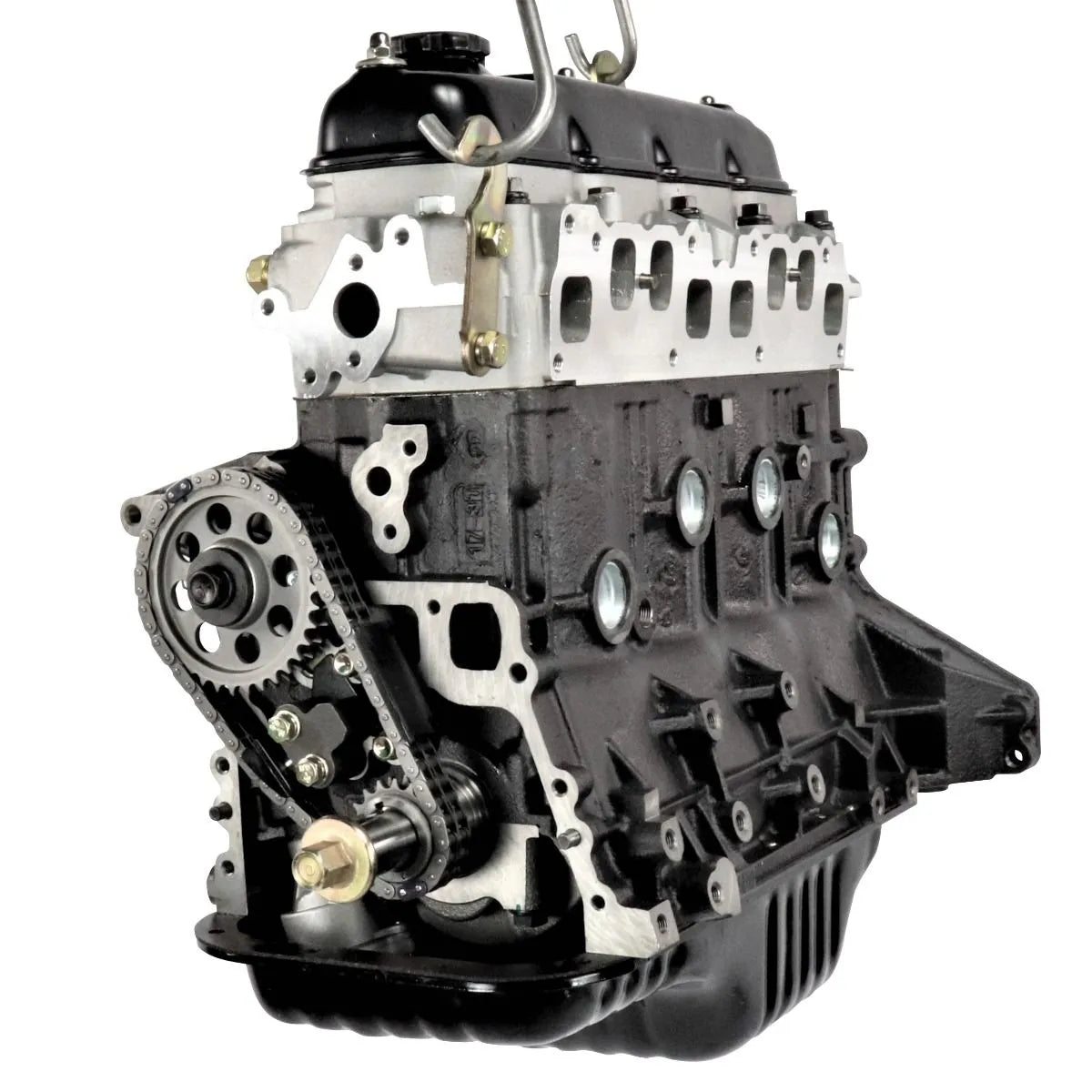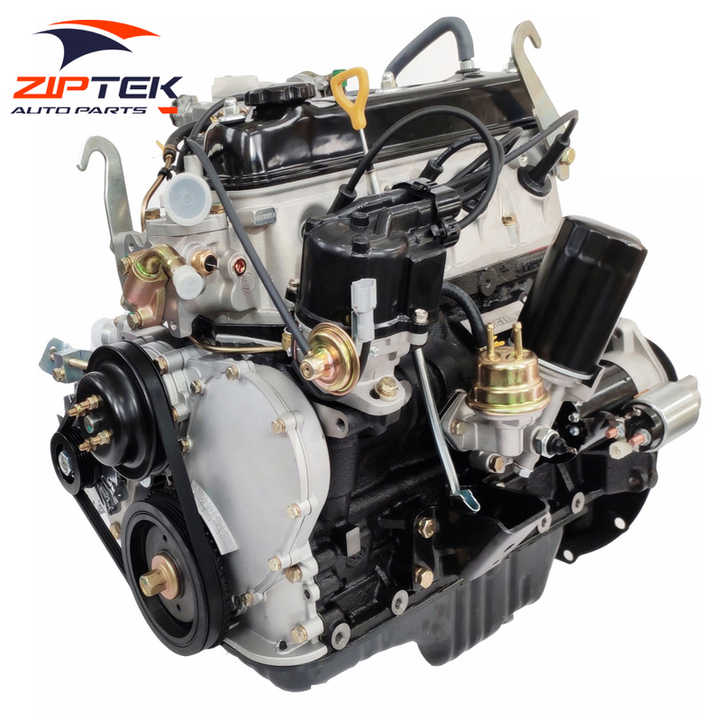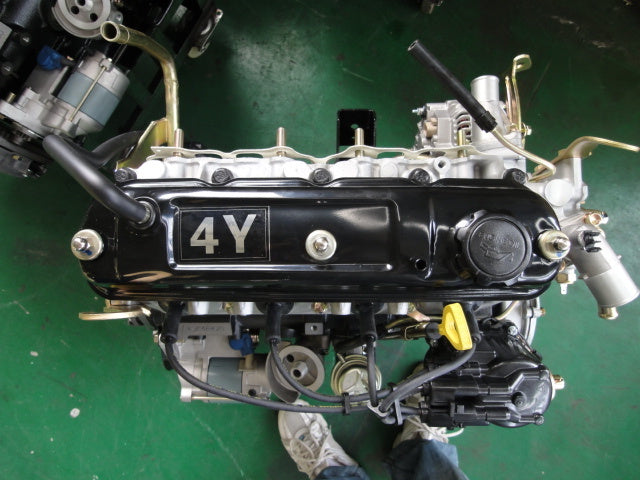Exploring the Different Kinds Of Engine: Which One Fits Your Requirements?
Interior burning engines continue to dominate due to their integrity, while electrical engines are getting grip for their sustainability. Crossbreed engines use a flexible concession, and diesel engines stand out for their power in requiring applications.

Inner Combustion Engines
Inner combustion engines (ICEs) are the backbone of modern-day transportation, powering a vast selection of lorries from cars to aircrafts. These engines operate on the principle of transforming fuel into mechanical energy through a collection of controlled surges within a burning chamber. One of the most typical kinds of ICEs consist of gas engines, diesel engines, and rotary engines, each developed to fulfill certain performance and efficiency needs.
Fuel engines commonly make use of trigger ignition, while diesel engines depend on compression ignition, causing unique differences in fuel performance and power result (4y engine). Rotating engines, or Wankel engines, use a portable style and smooth operation, but are less generally used in mainstream applications
ICEs have actually undergone substantial improvements in innovation, including the intro of turbocharging and fuel shot systems, which improve overall effectiveness and efficiency. Regardless of their efficiency enhancements, ICEs encounter enhancing analysis due to their environmental effect, particularly concerning greenhouse gas exhausts.
Electric Engines
As issues regarding ecological sustainability and nonrenewable fuel source reliance expand, electrical engines have actually emerged as a compelling choice to interior combustion engines. These engines utilize electric motors powered by batteries or fuel cells, providing a cleaner and much more reliable means of propulsion.
Among the main benefits of electrical engines is their decreased exhausts. Unlike standard engines that shed nonrenewable fuel sources, electrical engines generate absolutely no tailpipe discharges, significantly reducing air pollution and adding to improved public health. In addition, the effectiveness of electric motors usually exceeds that of internal burning engines, transforming a greater percentage of power from the power source right into functional energy for activity.
Electric engines are also noteworthy for their peaceful procedure, making them suitable for urban settings. 4y engine. The simplicity of their design leads to less relocating parts, which can lead to minimized upkeep costs and enhanced reliability in time
Nonetheless, challenges stay, including battery production influences, billing framework, and array constraints. In spite of these difficulties, the growing investment in electric car innovation and renewable resource resources factors towards an appealing future for electric engines, placed to play an important duty in the transition toward lasting transportation.
Crossbreed Engines
Blending the benefits of both standard and electric internal combustion engines, hybrid engines represent a versatile service in the mission for reliable and sustainable transportation. These engines incorporate a fuel or diesel motor with an electric motor, enabling enhanced fuel effectiveness and reduced exhausts compared to conventional cars.
Crossbreed engines run in several settings, making use of the electric motor for low-speed driving and the inner burning engine for greater rates or when even more power is required. This dynamic operation not just boosts gas economic situation however also adds to a smoother driving experience. Regenerative stopping is one more critical attribute, capturing power usually shed throughout stopping and rerouting it to charge the battery.

As consumers significantly prioritize eco-friendliness, hybrid engines stick out as a practical selection, supplying an effective balance of performance, performance, and ecological obligation. This adaptability makes them suitable for city travelling and long-distance traveling alike.
Diesel Motor
Efficiency and power are trademarks of diesel motor, which have long been favored for their robustness and fuel economic situation. These engines operate the principle of compression ignition, where air is pressed to a heat prior to gas is injected, sparking it without the demand for ignition system. This procedure makes it possible for diesel engines to attain higher thermal performance compared to fuel engines, translating right into much better fuel mileage and lower co2 exhausts.
Diesel engines are specifically fit for durable applications such as vehicles, buses, and industrial machinery, where torque and durability are paramount. Their style generally consists of stronger components to hold up against the greater stress generated see throughout procedure, resulting in longer life span and decreased upkeep prices.

Different Fuel Engines
While diesel motor have long dominated the landscape of heavy-duty source of power, alternate gas engines are acquiring grip as viable choices for a much more sustainable future. These engines use a variety of fuels, such as compressed gas (CNG), gas, hydrogen, and ethanol, intending to lower greenhouse gas emissions and reliance on nonrenewable fuel sources.
One significant benefit of alternative fuel engines is their possible to reduced carbon impacts. For instance, CNG engines release fewer contaminants contrasted to standard diesel engines, making them suitable for urban transit systems and fleets looking for to enhance air quality. Ethanol, originated from biomass, not only minimizes emissions however also sustains farming economic climates.
Hydrogen gas cells stand for an innovative development in this realm, providing zero-emission power via a chemical reaction between hydrogen and oxygen. However, obstacles such as facilities development and production costs stay obstacles to extensive fostering - 4y engine.
Verdict
To conclude, selecting the appropriate engine type requires careful consideration of specific demands and choices. Internal combustion engines offer integrity, while electric engines prioritize sustainability and minimized upkeep. Hybrid engines combine the advantages of both, boosting performance, whereas diesel engines offer remarkable power and torque for heavy-duty applications. Alternate fuel engines existing environmentally friendly choices, albeit with prospective framework difficulties. Eventually, a thorough assessment of driving routines and environmental values will certainly assist in a notified decision pertaining to engine choice.
Crossbreed engines supply a functional concession, and diesel engines stand out for their power in requiring applications. The most common types of ICEs consist of gas engines, diesel engines, and rotary engines, each created to fulfill details performance and effectiveness needs.
Unlike standard engines that burn fossil gas, electric engines create no tailpipe discharges, substantially decreasing air contamination and contributing to boosted public health and wellness.Hybrid engines operate in a number of settings, utilizing the electric motor for low-speed driving and the interior burning engine for higher speeds or when more power reference is required. Hybrid engines integrate the benefits of both, enhancing efficiency, whereas diesel engines offer superior power and torque for sturdy applications.